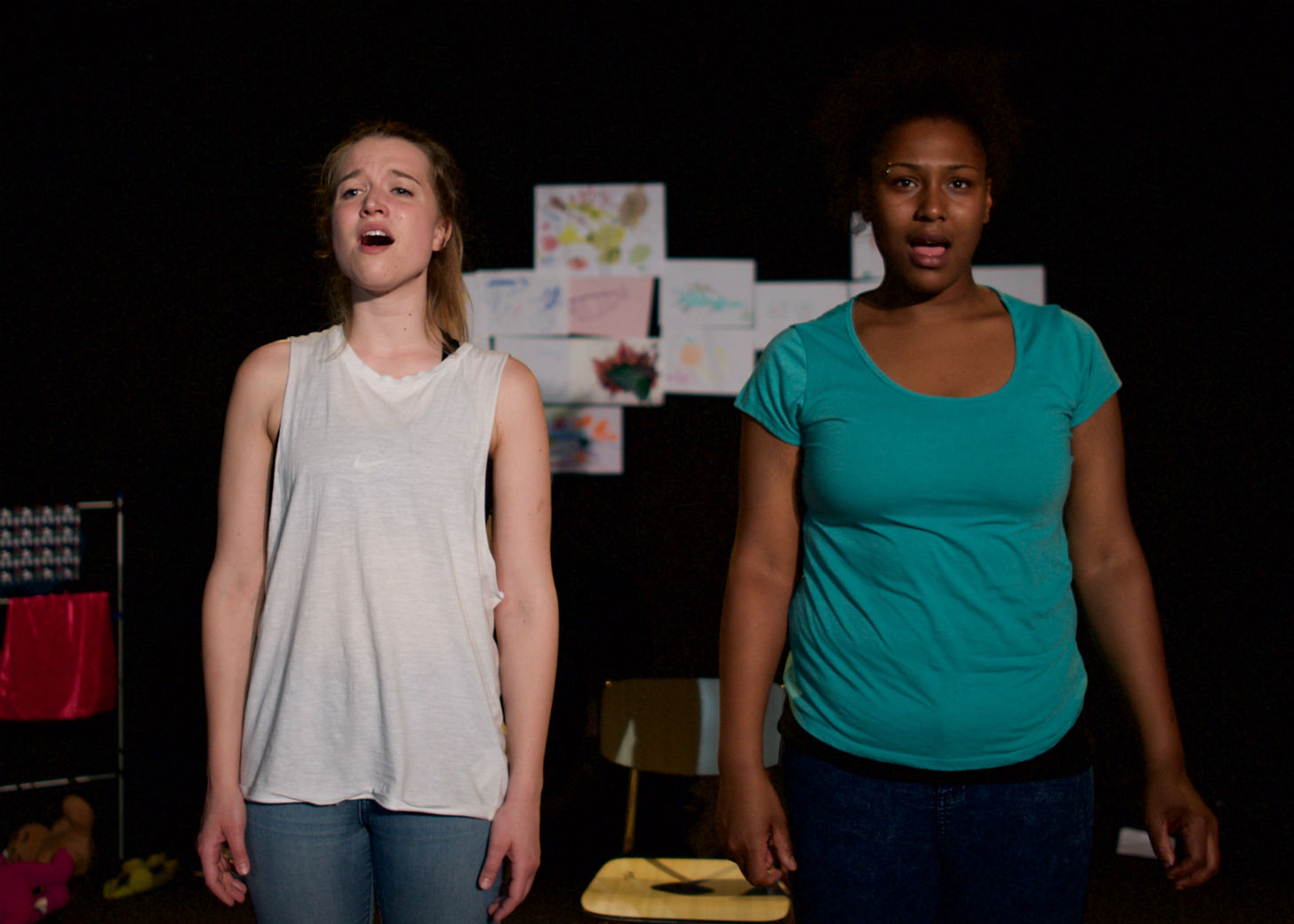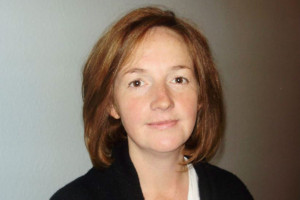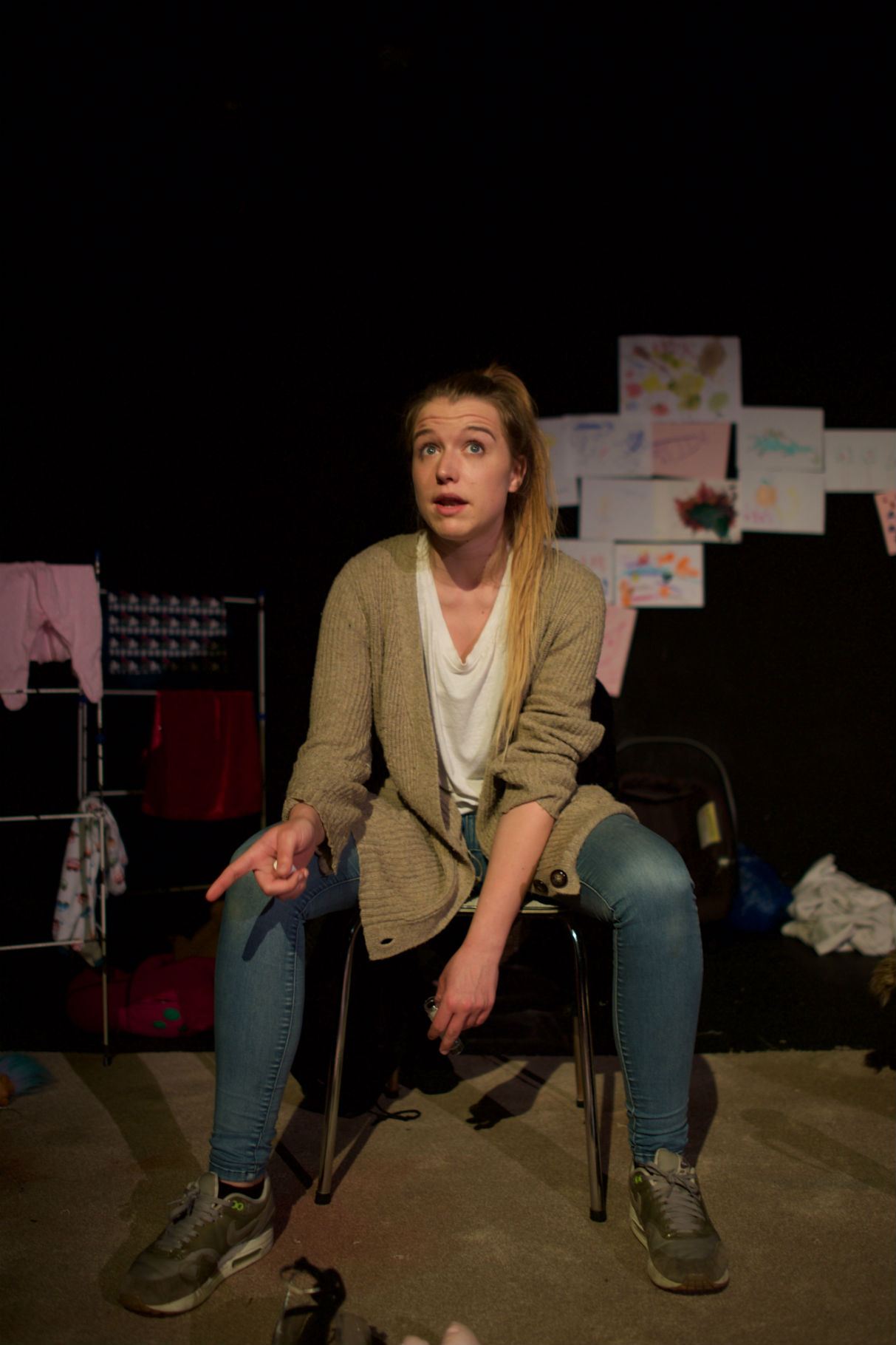
My play, Score, is a two-hander with harmonies of nineties and noughties hits, inspired by interviews with parents in drugs recovery. Really.
It’s a juke box musical about child removal, if you can imagine such a thing, and has a surprisingly hopeful message about the treatment of addicted parents. So how did a 40 year-old forces wife get to write such a thing?
Having worked as a BBC documentary maker and a teacher, and moved house extensively with the military, I have always been interested in other people’s stories. But while teaching in HMP Kingston lifers’ prison I started to get a bit obsessed by the British notion of rehabilitation.
On the one side we’re proud of our humane welfare state, on the other the justice system must be seen to punish people, often women who’ve been abused and prostituted. For females in particular, short term sentences are really problematic. Children go into care, addiction and self-harm is rife and the scarcity of female prisons means you’re hundreds of miles from family. Drug dependency isn’t just a problem for women: up to 70% of child removal cases have an addicted parent at their heart.

So there I was last summer, in a sweaty windowless room at Bournemouth’s recovery hub talking to a group of parents who had me laughing and crying in equal measure.
I related to their paranoid experiences of state intervention. One of my children has a disability and, pre-diagnosis, my parenting was under the microscope. I expected to feel some negative judgement but found the one characteristic they shared was optimism. I guess you need a certain amount of optimism to use heroin and expect your family life to stay intact. You need bucketfuls to graduate from treatment and get your children back. And obviously a lot of commitment to those children to remain abstinent, once your brain has become hard wired to “pick up”. Score explores the delicate balance of protecting children from harm, while preserving their family continuity.

Losing the right to one’s kids seems like the most unimaginable thing that could happen to a mum, however necessary it might be. We all have such strong feelings about the care system, so this play felt like a story I wanted to tell. Dr Hughes’ study, unlike so much in the media, had a significant note of hope and redemption running through it; I wanted to reflect this.
So how to stage a show that didn’t leave people crying into their beer? The power of music of course. From British civil war folk songs through to slave music, singing has long been a free way to vent feelings of powerlessness. And what else do you do when you’re under pressure? Laugh. I hooked up with a director (Stephanie Kempson) and arranger (Verity Standen) from Bristol Old Vic and shared the idea of two girls who grow up harmonising together. Steph wisely cast Lara Simpson and Kathleen Fitzpatrick Milton, two very subtle actors who can really belt out a tune.
Milton plays Hannah, an X Factor afficionado with a mile-a-minute mouth, a ten year-old daughter and a low-level heroin habit. Simpson plays her childhood friend, Kirsty, who is pulled along in Hannah’s slipstream days before giving birth.
Two years later they meet at a child contact centre. Hannah’s in recovery, Kirsty’s in anger management. Hannah joins a choir to replace one kind of score with another, but she’s the last person Kirsty wants to harmonise with. Life without a habit is far from routine…
Our tour started at Exeter Bike Shed Theatre and Camden People’s Theatre, but has had pit stops at universities training family social workers, and Plymouth Fringe, where we won an award.
The latter performance attracted a large audience of mothers in recovery (quite scary). It was a relief to hear mums say they wanted their children to see the play to better understand their experiences. Both the social workers and recovering addicts provided honest feedback on how we could sharpen the focus of the play; we’ve worked hard to do their comments justice.
It’s really exciting to return to Camden People’s Theatre and perform the show in front of schools, as well as the general public, on the Southbank this month. The subject of addiction and rehabilitation is divisive at the best of times so we expect some lively debate.
My indomitable characters, Hannah and Kirsty, aren’t real people of course, and their words aren’t verbatim. But the detail and realism is entirely down to Dr Hughes’ study and those resilient contributors that made it possible.



2 thoughts on “Score: a jukebox musical about heroin and child removal”
AmysFoundation Thanks for the retweet guys. We’d love for you to see #Score, is there an email I can send more info to?
.CamdenPT we are speaking with documentaltheat and should be meeting them before we come to see the show! looking forward to it x